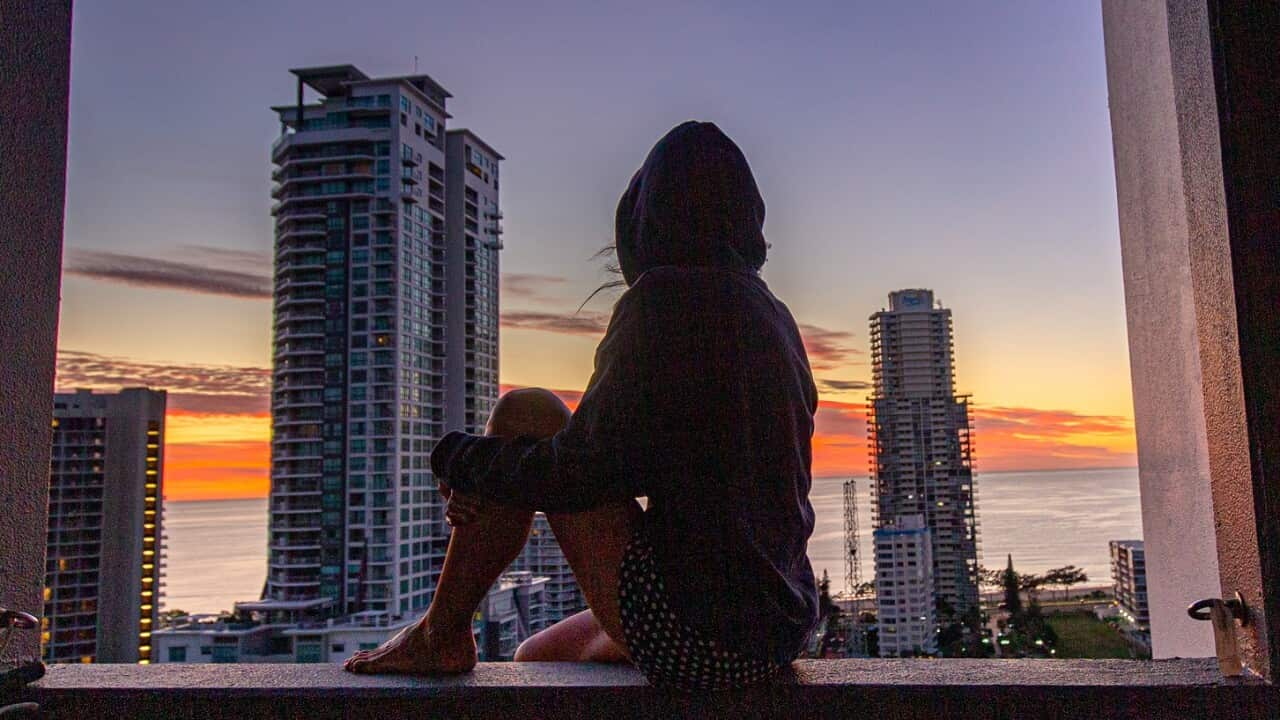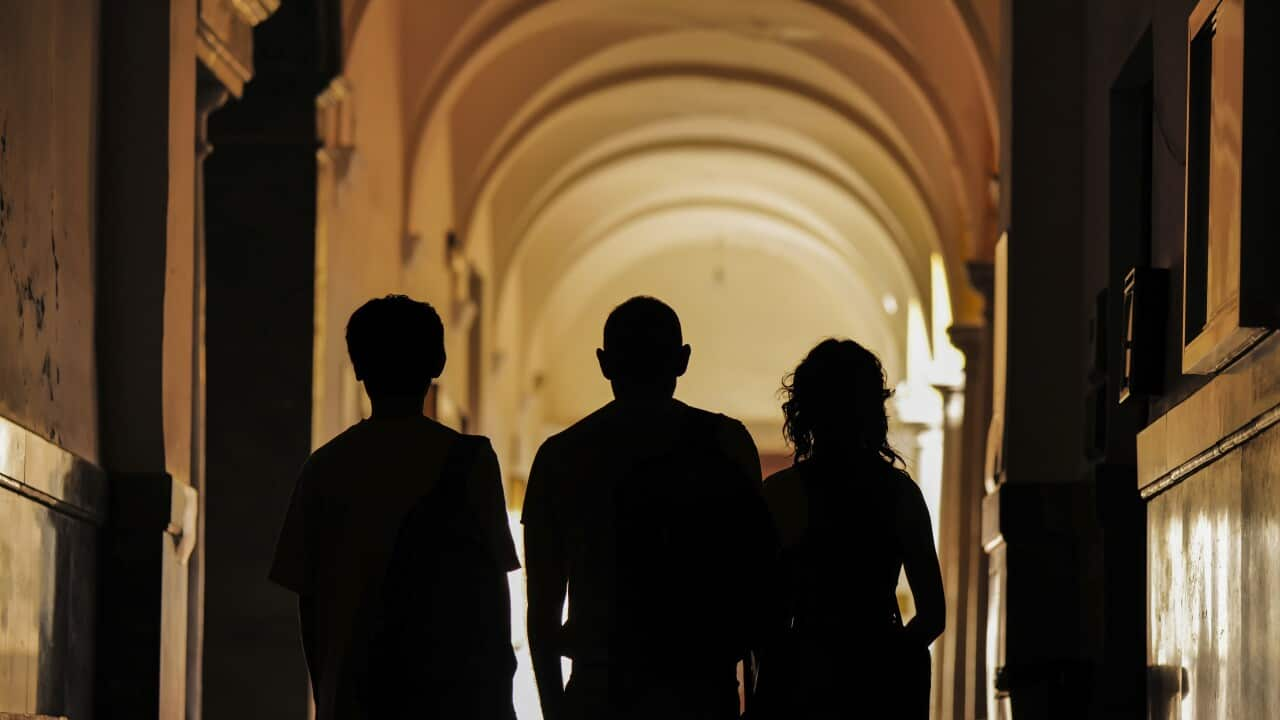Key Points
- The working holiday maker program is available to young adults from eligible countries who want to holiday and work in Australia.
- Separation from family and friends, changes in daily life, language barriers and culture shock can cause mental health problems.
- Counselling and other support services are available.
WARNING: This story contains distressing elements.
Sangcheol* came to Australia from South Korea on a working holiday visa and saved up money by working on a farm.
One day, he decided to visit a casino, where he won $1,700. But that’s when his troubles started.
After eventually gambling away all of his winnings, he reached out to pastor Joon Ho Back, chairman of the Korean Working Holiday Association in Victoria, for help.
Mr Back explained to SBS Korean that he set an alarm for 11pm every night and rang Sangcheol to distract him from visiting the casino on his way home from work.
When Mr Back was busy, he called upon other Korean community members who helped Sangcheol eventually overcome the temptation to gamble.
According to Mr Back, who was appointed by the Embassy of the Republic of Korea in Australia as a counsellor for working holiday visa holders, such stories are not uncommon.
“Not all cases have a happy ending, however,” he told SBS Korean.
Backpackers and mental health
The – which includes visa subclass 417 and subclass 462 – is available to young adults from eligible countries who want to holiday and work in Australia for up to a year.
With these so-called 'backpacker visas' travellers can carry out short-term work and study for up to four months. There are also opportunities to return for a second and third year if certain requirements are met.
For many, it’s seen as an exciting way to experience another culture. But, as Mr Back points out, it can also be socially isolating.
Separation from family and friends, change of daily life and place, language barriers and culture shock can be the main reasons why working holiday visa holders suffer from mental health problems.Joon Ho Back, counsellor
“In addition, the visa policy, which often changes, can be a great stress for those who plan to obtain a permanent visa and live in Australia after studying or working here.”

Joon Ho Back visits Warrnambool once a month to meet with working holiday visa holders from Korea. Credit: Supplied by Mr Back
"There is a high possibility that backpackers and international students who live alone in Australia, away from their families and strong social systems, may fall into addictions such as gambling," she said.
"But making friends and actively engaging in social activities in Australia can be helpful," she added.
According to a recent report by the , each year, an estimated one in five people in Australia aged 16-85 experience a mental health disorder.
A global study conducted by the University of Queensland and Harvard Medical School found that one in two people will suffer from mental health disorders during their lifetimes.
Lead author, Professor John McGrath, said the results demonstrated the high prevalence of mental health disorders, with 50 per cent of the population developing at least one disorder by the age of 75.
“The most common were mood disorders such as major depression or anxiety,” Prof McGrath said.
According to the , the three most common mental health disorders among women are depression, specific phobia and post-traumatic stress (PTSD), while the three most common mental health disorders in men are alcohol abuse, depression and specific phobia.
As of 31 December 2022, there were 93,464 Working Holiday (subclass 417) visa holders in Australia.
More than 7,000 of these hail from South Korea, placing the country the UK, France, Ireland, Germany and Italy.
"There is not one single cause of depression," Ms Seo said.
Depression could be caused by a variety of physiological, environmental and relational factors, she said, adding that there were also various ways to treat depression.
Should symptoms worsen, Ms Seo said it was important to see a GP or specialist for psychological treatment.
“It may not be easy to establish proper social relationships when adapting to a new environment. It can be better to go out for a walk or exercise to relieve stress and maintain peace of mind, rather than look at your phone,” she said.
Help is available
Founded in 2013, originally only provided services in Sydney, but now 32 professional counsellors provide 24-hour services, seven days a week.
“The main task is to consult and help people in crisis situations, but events such as walks are also held to proactively address mental health problems,” Ms Seo said.
In 2015, the Embassy of the Republic of Korea in Australia introduced a counsellor network to help Korean working holiday visa holders during their time Down Under.
“Once a month, I visit Warrnambool, where many Korean working holiday makers are working in abattoirs, cafes and stores. We share food prepared by the Korean community and consult with those in need," Mr Back said.
Today, the network operates in Victoria, Queensland, Western Australia and Tasmania.

From left to right: Joon Ho Back, chairman of the Korean Working Holiday Association in Victoria, Mijin Seo, the director of Australian Korean Lifeline and Ken Hong, president of the Korean Australian Lawyers Association. Credit: Supplied
“Many working holiday visa holders and international students are often stressed about legal issues. They are often struggling with costs and language barriers, which causes mental health problems as well,” he said.
For this reason, KALA offers a free legal counselling service, Mr Hong said.
He first came to Australia in 1994 as an overseas student from Seoul, before completing a law degree through Bond University and being admitted as a lawyer in 2004.
“I can understand their difficulties because I experienced many of the same problems when I was an overseas student in Australia,” he said.
The service was established in 2011 and since then, its student volunteer lawyers have provided more than 4,000 hours of free service and more than 840 free legal consultations.
Myoungwon Lee, Consul at the Consulate of the Republic of Korea in Sydney, also had words of support for those suffering hardship.
"If you think you have a mental health problem, don't hesitate to seek counselling from a counselling or medical institution. There are cases where international students and working holiday visa holders suffer from sudden environmental changes, and the problem may worsen after suffering alone,” he said.
"When Koreans with mental health difficulties contact the consulate, we introduce institutions that can provide treatment and support, and provide detailed information on application procedures for seeking help."
Readers seeking support with mental health can contact Beyond Blue on 1300 22 4636. More information is available at .
supports people from culturally and linguistically diverse backgrounds.



